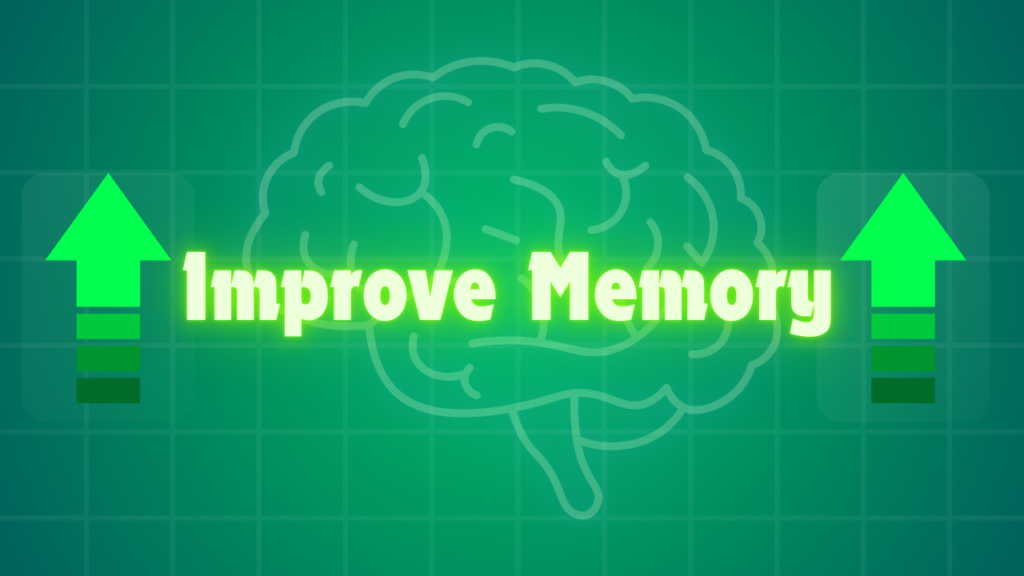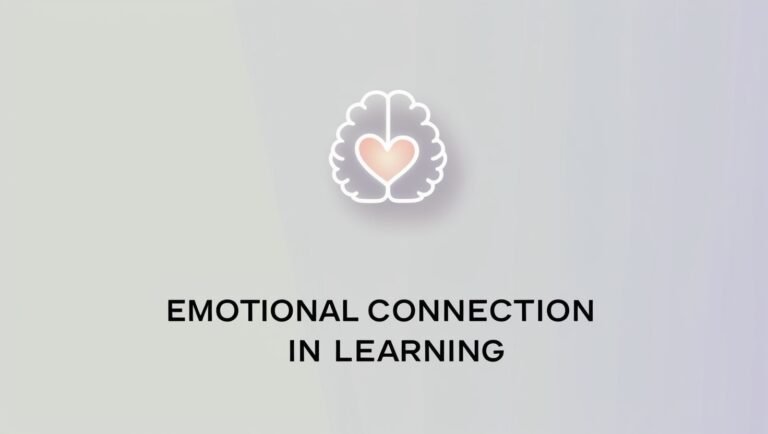Your memory is your wealth. The ability to remember things enhances your confidence and strengthens your personality. Sometimes, we struggle to recall important aspects of our lives. If you are a student, you may feel this acutely during exams. Or, if you are very busy, you might forget where you put your car keys, wallet, or other valuable items. This issue is related to your memory. However, there are ways to improve and boost it. Over time, personal lifestyle changes can help restore and enhance your memory power.
So Let’s talked about types of Memory –
2. Long-term Memory.
In this article, I will share with you how you can improve your memory over time, including insights from Islamic teachings. Insha-Allah, I hope you will read this article in its entirety and invest your valuable time in learning ways to enhance your memory.
Table of Contents
1. Sincerity (Ikhlas)
“Allah’s Messenger (ﷺ) said, ‘The reward of deeds depends upon the intentions, and every person will get the reward according to what he has intended.’ [Sahih Bukhari 1:1; Sahih Muslim 1907]”
Sincerity is the root of success at any work. And the main element of sicerity (Ikhlas) is Intensity or Niyyah. Ustad Khurram Murad said about the importance of Intensity (Niyyah) that – “Purpose or intention is like our soul or the life force within a seed. Most seeds look quite similar, but the real difference becomes clear when they grow into plants and start bearing fruit. Similarly, the purer the intention, the better the results of our actions will be.”
In this context, Allah (SWT) said: “And they were not commanded except to worship Allah, [being] sincere to Him in religion, inclining to truth, and to establish prayer and give zakah. That is the correct religion.” [Quran 98:5]
"Allah (SWT) does not look at your appearance or wealth, but rather He looks at your hearts and actions." [Sahih Muslim 2564]
Since Allah (SWT) created us to worship Him, having a sincere intention in learning or memorizing anything turns it into an act of worship, which benefits us in both this world (Duniya) and the Hereafter (Akhirah).
2. Make Du'a and Engage in Dhikr
All of we know, we can’t be success at any work without the help of Allah (SWT). That’s why, we must always make Du’a to Allah to improve our memory and grant us beneficial knowledge.
رَبِّ زِدْنِي عِلْمًا
Meaning: 'My Lord, increase me in knowledge.'
رَبِّ اشْرَحْ لِي صَدْرِي وَيَسِّرْ لِي أَمْرِي وَاحْلُلْ عُقْدَةً مِن لِّسَانِي يَفْقَهُوا قَوْلِي
Meaning: "My Lord, expand for me my chest (with assurance) and ease for me my task. And untie the knot from my tongue that they may understand my speech."
Moreover, Dhikr or remembrance of Allah also helps in improving memory. In this context, Allah (SWT) said: “And remember your Lord when you forget.” [Quran 18:24]
That’s Why we should Dhikr frequently – Subhanallah (Glory be to Allah), Alhamdulillah (All praise is due to Allah), La ilaha illallah (There is no god but Allah), Allahu Akbar (Allah is the Greatest).
"Allahumma inni as'aluka 'ilman naafi'an, wa rizqan tayyiban, wa 'amalan mutaqabbilan."
Meaning: "O Allah, I ask You for beneficial knowledge, good provision, and accepted deeds." [Sunan Ibn Majah, 925]
✔ Make this dua regularly: للَّهُمَّ إِنِّي أَعُوذُ بِكَ مِنَ الْعَجْزِ وَالْكَسَلِ وَالْجُبْنِ وَالْبُخْلِ وَالْهَرَمِ وَعَذَابِ الْقَبْرِ اللَّهُمَّ آتِ نَفْسِي تَقْوَاهَا وَزَكِّهَا أَنْتَ خَيْرُ مَنْ زَكَّاهَا أَنْتَ وَلِيُّهَا وَمَوْلاَهَا اللَّهُمَّ إِنِّي أَعُوذُ بِكَ مِنْ عِلْمٍ لاَ يَنْفَعُ وَمِنْ قَلْبٍ لاَ يَخْشَعُ وَمِنْ نَفْسٍ لاَ تَشْبَعُ وَمِنْ دَعْوَةٍ لاَ يُسْتَجَابُ لَهَا
" O Allah, I seek refuge in Thee from incapacity, from sloth, from cowardice, from miserliness, decrepitude and from torment of the grave. O Allah, grant to my soul the sense of righteousness and purify it, for Thou art the Best Purifier thereof. Thou art the Protecting Friend thereof, and Guardian thereof. O Allah, I seek refuge in Thee from the knowledge which does not benefit, from the heart that does not entertain the fear (of Allah), from the soul that does not feel contented and the supplication that is not responded." [Sahih Muslim, 2722]
3. Staying Away from Sin
One effect of constant sinning is poor memory. The darkness of sin and the light of wisdom can never coexist.
Imam ash-Shafi’i (rahimahullah) said, “I complained to (my shaykh) Waki’ about my bad memory, and he taught me to keep away from sin. He said, ‘The knowledge of Allah is a light, and the light of Allah is not given to a sinner.'”
Yahya bin Yahya said, “A man asked Malik Ibn Anas, ‘O Abd-Allah, is there anything that can strengthen my memory?’ He said, ‘If anything can strengthen the memory, it is to give up committing sins.'”
When a man sins, it leads him to anxiety and sorrow. He gets distracted by his work, causing his senses to become dull, and he turns away from beneficial activities like acquiring knowledge. Therefore, we must try our best to stay away from such sins.
"Abu Huraira reported: The Messenger of Allah (ﷺ) said, 'When a servant commits a sin, a black spot appears on his heart. If he abandons the sin, seeks forgiveness, and repents, his heart will be polished. If he returns to the sin, the blackness will increase until it covers his heart. This is the covering that Allah mentioned: No! Rather, the stain has covered their hearts of that which they were earning.'"
📄 Narrated Abu Huraira:I heard Allah's Messenger (ﷺ) saying." By Allah! I ask for forgiveness from Allah and turn to Him in repentance more than 70 times a day." [Sahih Bukhri, 6307]
4. Trying Through Various Methods
If you look a little deeper, you will see that we do not all have the same memorization methods. Some people memorize faster when lying down, while others memorize better when walking. Some prefer to read silently, while others prefer to read aloud. Some people memorize early in the morning, while others do so late at night. Each of us should make proper use of our own suitable times and surroundings.
5. Applying What Has Been Memorized
We all agree that the more a subject is read, the more strongly it sticks in our brains. This is why repetition is key to learning.
However, many people may not have time to read extensively in their busy lives. But if we want, we can kill two birds with one stone. We can recite our memorized Surahs or parts of Surahs, especially optional prayers (Nafl) and Sunnah prayers, during Salah (prayer) and recite supplications (Duas) after Salah or at any other time. This way, we practice one aspect each day and work on memorized topics on other days.
6. Teaching Others
One of the best ways to learn something is to teach it to others. This is why we have to read the same material repeatedly and from different sources. By doing so, the subject becomes permanently embedded in our memory. Its usefulness is so great that I cannot summarize it. This requires writing a unique blog. You can learn about the Feynman Method if you want.
7. Consuming Brain-Healthy Foods
Eating a moderate and balanced diet is absolutely essential for the health of our brain.
As a result, we turn away from enlightenment. Additionally, there are some foods that are very beneficial for our brain. A recent French study found that “Olive oil improves visual memory and verbal fluency.”
Imam Az-Zuhri advised to improve memory: “You should consume honey, for it is beneficial for memory.”
Honey contains free sugar molecules that are beneficial for our brain. Moreover, studies have shown that honey begins to work within seven minutes of consumption.
8. Taking Adequate Rest (Sleep)
When we sleep, our brain functions like a busy office, processing the data collected throughout the day. Additionally, sleep is crucial for the regeneration of brain cells and the elimination of fatigue. A short power nap in the afternoon can help improve our mood and energy levels. Taking such naps is a Sunnah. It is also important to avoid the evils of oversleeping. Therefore, we should avoid using social media and mobile devices at night to ensure our brain gets adequate rest.
9. Eliminating Unnecessary Things
Currently, one of the reasons for the decline in our brain performance and reluctance to acquire knowledge is our engagement in unnecessary activities. As a result, we struggle to focus deeply on any task. Sometimes, the situation becomes so severe that it affects our ability to perform prayers effectively.




